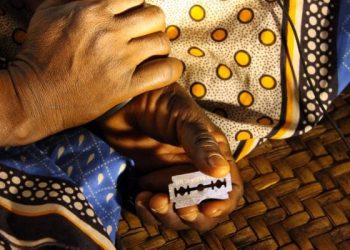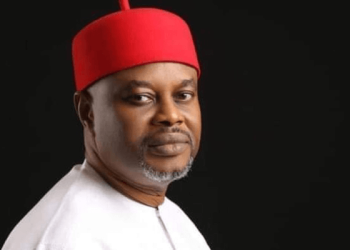THE twin bomb explosions the other day in Kaduna metropolis that killed no fewer than 60, and which presumably had former head of state and All Progressives Congress (APC) chieftain, Major General Muhammadu Buhari (rtd) and prominent Islamic cleric, Sheikh Dahiru Bauchi as prime targets, should compel a new thinking on the war on terror in Nigeria. That those bombings were unconscionable acts of malevolence and sadistic fury perpetrated by enemies of Nigeria is not so much scary and sobering as the consequences they would have brought upon an already traumatised nation had they hit their targets.
Whatever the motive of the perpetrators of this carnage, that act was malicious, repugnant and condemnable. And like other terrorist activities of such murderous dimension, it should not be trivialized to score political gains even if it were not an assassination attempt on Buhari.
Needless to say, if the assassination attempt on Buhari and Bauchi had been successful, the country would have been in a terrible bloody crisis by now. Being the most vocal northern political actor, Buhari has, lately, been very outspoken against Boko Haram. His recent invectives against the murderous sect prompted the Federal Government to take pro-active measures for his security. This is commendable even though the Nigerian public deserves the same concerned treatment offered the like of General Buhari.
However, for a crisis that is inching towards the comfort zones of privileged Nigerians, it is unfortunate that politicians are turning terror in Nigeria into a convenient means of trading diatribes and making reckless verbal exchanges, as had been observed between spokespersons of the ruling PDP and its main opposition APC.
Governors of the APC, under the aegis of the Progressives Governors’ Forum (PGF) had held President Jonathan responsible for the assassination attempt on Buhari because of the latter’s criticism of this administration, while former Aviation Minister and self-anointed spokesperson of the PDP, Femi Fani-Kayode, at the time described the Boko Haram as the militant wing of the APC. Such grave, unjustified and unfounded comments from both sides are reckless, puerile, irresponsible and counterproductive. That politicians and public officers should sacrifice the safety and security of citizens on the altar of party interests and petty personality squabbles as Nigerians have observed among members of the ruling class is inept and insensitive.
Politicians and public officers whose duty it is to launder the image of their superiors should desist from trivializing and politicising the bomb attack by making careless and irresponsible statements capable of causing public disaffection and inciting violence. They should be mindful of the painful fact that their asinine posture neither solves the problem of insecurity nor prevents them from harm’s way. Nobody should be fooled by the thinking that by one party dishing out reckless comments against the other, it has earned the sympathy of the Boko Haram.
The attacks should be seen and understood for what they are: dastardly, but cowardly acts of bestiality carried out by a murderous sect of misanthropic elements bent on frustrating the progress of human civilisation.
In denouncing the monstrosities of this sinister organisation even before now, this newspaper has consistently stated that, by its cruel harvest of deaths, the insurgents are telling Nigerians that the worst is yet to come. And truly, the unfathomable proportion of their insanity is gradually being unveiled by the selective attacks of public figures. That they are beginning to target well-known vocal critics of its murderous venture is a message which should be well understood by politicians and senior citizens. No one is safe.
In other climes, where a high sense of responsibility to the people is the hallmark of leadership, the security emergency created by this carnage would necessitate a fruitful synergy of both the ruling party and the opposition to address this national malaise. As if to pass on a lesson in efficiency, the security forces of neighbouring Cameroun were able to rescue the kidnapped wife of the Deputy Prime Minister, Mrs. Amadou Ali, 24 hours after suspected Boko Haram members abducted her. The same seriousness that the Camerounians displayed in the rescue mission of one life should be emulated by the Nigerian government.
By its own self-assessment, the government claims it has done a lot, and is doing a lot more to effectively curb the menace of terrorism. As always, it has directed the police and other national security organisations to apprehend perpetrators. With a whopping sum running into several billions of naira, and an expected injection of another $1 billion worth of loan to address security problems, the government can be granted its claim to have made some success. Yet, the government’s relative success is dwarfed by the devastating stealth and incredible audacity by which the insurgents operate. The wanton bloodletting, the indiscriminate bombing and continuous siege on this country cannot be addressed routinely. Action must be seen to be taken by this administration in order to build the people’s confidence.
It is imperative on the government, therefore, to ensure that this frightening, bloody episode is curtailed by whatever means are deemed proper. Judging by their widely acknowledged gravity, the activities of Boko Haram and other violent organisations demand the concerted efforts of all well-meaning groups and persons to frontally address Nigeria’s lingering problem of insecurity.













































